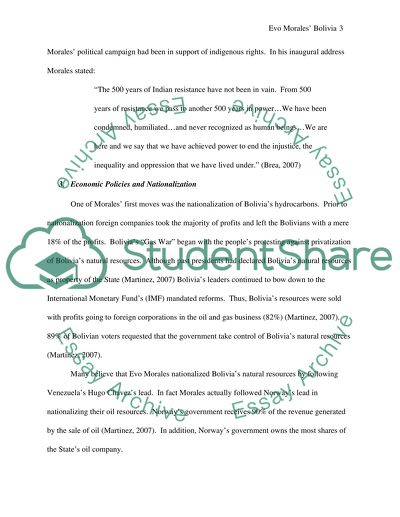Cite this document
(“Evo Morales Bolivia Case Study Example | Topics and Well Written Essays - 1500 words”, n.d.)
Retrieved from https://studentshare.org/politics/1528049-evo-morales-bolivia
Retrieved from https://studentshare.org/politics/1528049-evo-morales-bolivia
(Evo Morales Bolivia Case Study Example | Topics and Well Written Essays - 1500 Words)
https://studentshare.org/politics/1528049-evo-morales-bolivia.
https://studentshare.org/politics/1528049-evo-morales-bolivia.
“Evo Morales Bolivia Case Study Example | Topics and Well Written Essays - 1500 Words”, n.d. https://studentshare.org/politics/1528049-evo-morales-bolivia.


